 My blog post on Friday didn’t go out in the DailyDigest so for any of you who weren’t aware, as the story below verifies the EU Work Programme summaries are now available!
My blog post on Friday didn’t go out in the DailyDigest so for any of you who weren’t aware, as the story below verifies the EU Work Programme summaries are now available!
/ Full archive
What do you get when you cross the RDU with 5 colours of paint, 8 rollers and 22 brushes…a really fantastic Away Day!
 Last Thursday the RDU took part in our team Away Day! We wanted our Away Day to focus on giving back to our local community, so the RDU contacted The Hub who put us in touch with The Richmond Fellowship, which is a non-profit organisation that encourages, supports and challenges people with mental health problems.
Last Thursday the RDU took part in our team Away Day! We wanted our Away Day to focus on giving back to our local community, so the RDU contacted The Hub who put us in touch with The Richmond Fellowship, which is a non-profit organisation that encourages, supports and challenges people with mental health problems.
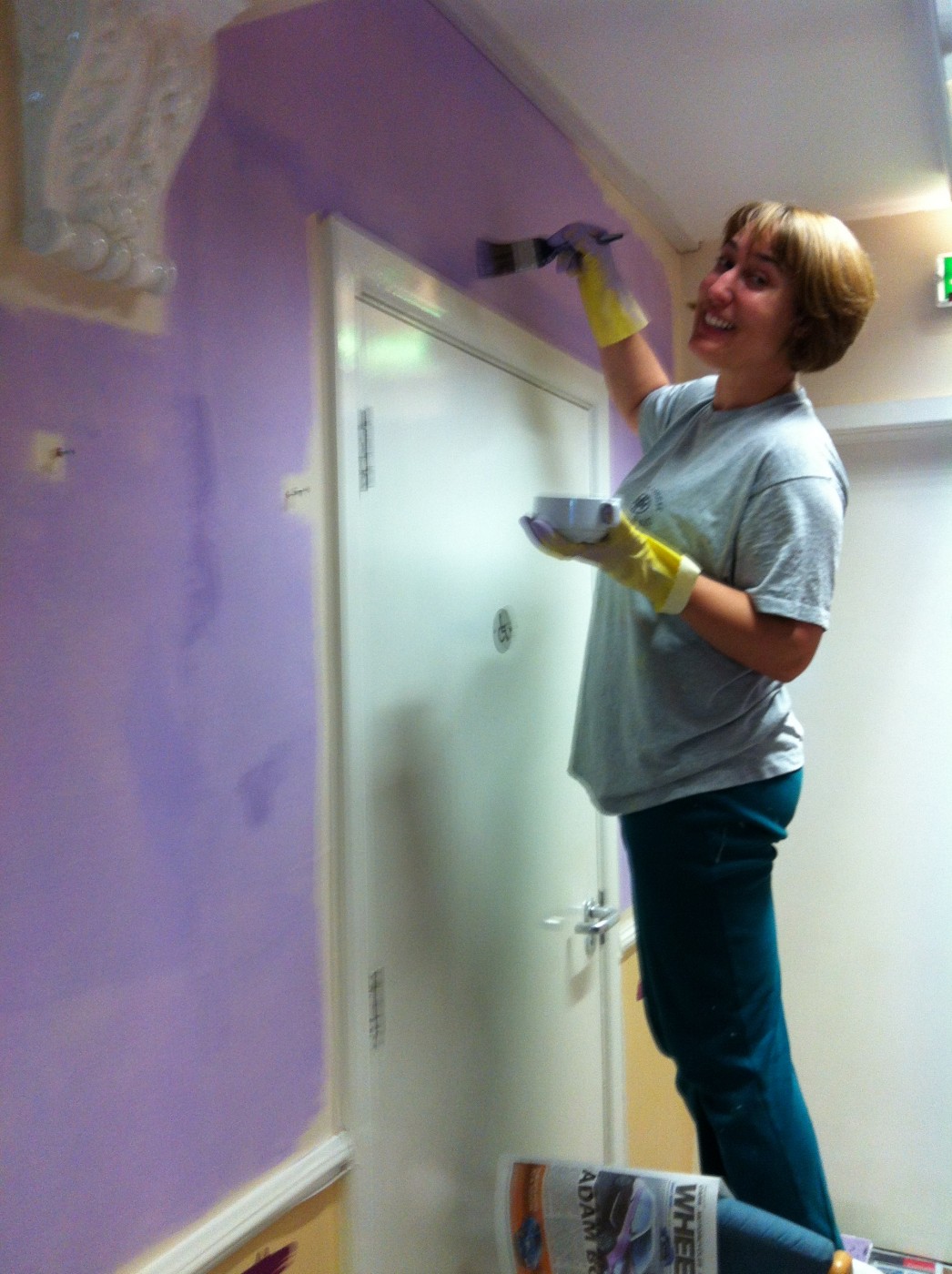 Our task for the day was to add life and colour to Bailey’s Cafe, which is attached to Richmond Fellowship and provides a selection of hot food, snacks, and drinks for all – at present, they have 9 trainees in Bailey’s Cafe who have a support plan that is targeted at getting them back to paid or voluntary work.
Our task for the day was to add life and colour to Bailey’s Cafe, which is attached to Richmond Fellowship and provides a selection of hot food, snacks, and drinks for all – at present, they have 9 trainees in Bailey’s Cafe who have a support plan that is targeted at getting them back to paid or voluntary work.
 We had a fantastic time and highly recommend other BU groups get involved and give back to this this great community!
We had a fantastic time and highly recommend other BU groups get involved and give back to this this great community!
Our community’s local Richmond Fellowship (East Dorset Community Services) is located in Christchurch and it provides a variety of recovery focused activities, training and one-to-one support for people with Mental Health problems. The Service is based on an ethos of social inclusion, service user involvement and individual support.  Activities include peer supprt, healthy living, horticultural groups, Bailey’s Frames, Bailey’s Cafe, groups and groupwork. East Dorset Community Services is part of one of the largest specialist mental health service provider in England. The Service enables people to undertake training and education and to access other support within their areas thus reducing social isolation.
Activities include peer supprt, healthy living, horticultural groups, Bailey’s Frames, Bailey’s Cafe, groups and groupwork. East Dorset Community Services is part of one of the largest specialist mental health service provider in England. The Service enables people to undertake training and education and to access other support within their areas thus reducing social isolation.
ECCG @ the IPA, Trying to ‘Make commercial sense of scholarly research’
We tried to see how much value might be placed on our scholarly work – PhD work mainly – by those in industries that are linked closely to our subject. In this case that meant talking to people from advertising agencies and our investigations into consumer culture. A series of brief introductory talks each followed by a seminar based discussion led by one of the academic team took place following this format:
The commercial value of academic research: insightful processes and findings
Dr Janice Denegri-Knott PhD work – virtual consumption
Dr Rebecca Jenkins PhD work – consumer imagination
Dr Mike Molesworth PhD work – consumer play
Dr Richard Scullion PhD work – consumer choice
Dr Carrie Hodges – cultural impacts on consumption
Some fascinating insights emerged from the day and I share them in no particular order of importance here.
Industry people are just as likely to say they will turn up and then not do so as our students!
They are locked firmly in the now, in their own practices and many resist being challenged on this
Despite our efforts to ‘talk business language’ it still felt a little impenetrable to our audience ‘for the sake of being clever’
Seeing things in ‘Black and white’ is still very much valued, the complexity and nuances are acknowledged but they want us to iron them out not explain why we shouldn’t, can’t, or are in danger of missing the essence of the material by doing so
More ‘positively’ they sort of know they need to break out of the now mode and the counting mentality but narrow definitions of ROI is currently a major block
Want to know more check this out
http://eccg.wordpress.com/2012/03/01/event-eccg-the-ipa-london-making-commercial-sense-of-scholarly-research-about-consumer-culture/
Festival of Learning… what could you do? Remembering just how exciting research is…
Reg ular readers of this blog may have already been alerted to the ESRC Seven Days of Social Science, but in case you have missed it, I would recommend having a look at the videos and accompanying documents
ular readers of this blog may have already been alerted to the ESRC Seven Days of Social Science, but in case you have missed it, I would recommend having a look at the videos and accompanying documents
The reason that I am highlighting these resources is to demonstrate the value of research and how it can be made accessible to a much wider audience. Conversations that I have had with colleagues over the past week or so (mainly ECRs, but not exclusively so!) have reminded me that sometimes it is hard to believe that your research will be of interest beyond your own academic peers. I recall some of my own research, for example, on New Labour’s public space policy – which on the surface sounds like a fairly dry topic (and I can assure you that the associated policy documents are classic examples of New Labour rhetoric, and fairly turgid reading) – however, this research has relevance to any of us wondering why our traditional high street has been placed by a shopping mall, why you can no longer sleep on a park bench or why trees are disappearing from London’s parks. It is, after all, hard to get through a day without encountering some kind of public space.
One of the best parts of my job, is learning about all the fantastic research that is going on across BU, which at times is nothing short of awe-inspiring. This makes me very excited to be helping develop the Festival of Learning and ensuring we engage a far wider public with the value of what we do.
The ESRC Seven Days of Social Science series is a great reminder of why research in the social sciences is fundamental in understanding and shaping the world in which we live, and inherently fascinating. It also is a reminder that if you have received public funding to conduct research, that we have a shared responsibility of engaging the public with the value of that research.
If you are interested in developing a proposal for the Festival of Learning and would like some helping in brainstorming ideas or support completing the proposal form, please do not hesitate to contact Becca on redwards@bournemouth.ac.uk or 01202 961206.
BBSRC/FSA joint call for Early Career Research Fellowships
Application deadline: 20 September 2012
Background
BBSRC, in partnership with the Food Standards Agency (FSA), encourages applications for early career research fellowships (analogous to the David Phillips fellowships scheme) in areas of science that are of strategic and scientific interest and importance to the funders. For more details see:![]()
- BBSRC’s strategic plan
- FSA’s strategy to 2015 (external link)
- FSA’s science and evidence strategy 2010-15 (PDF, external link)
They welcome proposals within the BBSRC/FSA remit. The FSA particularly encourages proposals which can demonstrate potential for significant leaps forward in providing the evidence needed to underpin its objective of safer food for the nation. These may be on current/new areas of interest where building research capability/capacity/new approaches would be helpful, for example:
- on foodborne disease organisms such as Listeria
- on emerging/new issues for which a compelling case can be made
Number of awards
They anticipate two 5-year fellowships will be awarded, in addition to the standard BBSRC David Phillips fellowships awarded annually, and subject to the usual excellent quality expected.
BBSRC and FSA have allocated up to £2M to fund these additional fellowships.
How to apply
Application to these fellowships is through the David Phillips fellowship scheme (see related links).
Applicants should submit a covering letter indicating that they wish to be considered for the BBSRC-FSA fellowships scheme.
Please note that only one application to both schemes is required.
Applications submitted which are considered out of remit will automatically be considered for a standard David Phillips fellowship, so long as they fall within the broader BBSRC remit.
Assessment
Applications to both schemes will be assessed in the same way through BBSRC’s Research Committee E (supplemented by appropriate expertise as required).
Application assessment will run concurrently with that of David Phillips fellowships.
Engagement with policy
As part of successful fellowships, each Fellow will be allocated a mentor from the FSA (in addition to the mentor assigned from BBSRC) to foster collaboration and interaction between the Fellow and the FSA.
Each Fellow will also be expected to spend approximately one to two days per month working with FSA staff to:
- develop understanding of the science into policy environment
- contribute to the strategic development of the Agency’s evidence base to underpin the formulation of FSA policies
Further information
Potential applicants are encouraged to contact BBSRC/FSA to discuss their proposals’ fit to remit, see contacts below.
External contact
Alisdair Wotherspoon, FSA (scientific remit)
alisdair.wotherspoon@foodstandards.gsi.gov.uk
Contact
Anuj Bhatt (scientific remit)
anuj.bhatt@bbsrc.ac.uk
Administrative enquiries
postdoc.fellowships@bbsrc.ac.uk
The RKE Operations team can help you with your application.
Summarised Work Programmes now available!
 Well, as I promised last week when the Work Programmes were released, I have taken the pain out of reading these for you and created summary documents. These are bookmarked so you can jump straight to the section you are interested in, see the call aims and objectives and deadline and the type of project it is without trawling through the Work Programme.
Well, as I promised last week when the Work Programmes were released, I have taken the pain out of reading these for you and created summary documents. These are bookmarked so you can jump straight to the section you are interested in, see the call aims and objectives and deadline and the type of project it is without trawling through the Work Programme.
You can then look up more specifics such as the assessment criteria in the Work Programme for those calls you are interested in.
Over 1, 000 pages have been compressed in to these documents which are in subject order and on our I drive. We are the only university to offer this service so hopefully you will find this a useful one.
The Work Programme Summaries can be found in the folder: I:\R&KEO\Public\RDU\Final Work Programme Summaries 2012
Festival of Learning… what could you do? An interactive exhibition?
 Do you remember when museums were full of dusty exhibits that you were not allowed to touch, or am I just showing my age? Fortunately those days are long gone and now as a nation we are blessed with many interactive museums that facilitate all generations to get involved to learn more about the fascinating world in which we live. Examples include Techniquest, the Natural History Museum or the National Museum Wales (amongst many, many others).
Do you remember when museums were full of dusty exhibits that you were not allowed to touch, or am I just showing my age? Fortunately those days are long gone and now as a nation we are blessed with many interactive museums that facilitate all generations to get involved to learn more about the fascinating world in which we live. Examples include Techniquest, the Natural History Museum or the National Museum Wales (amongst many, many others).
As a University, the creation of exhibits is not our primary purpose, however pop-up interactive exhibitions are a great way to get a much wider public really excited about the research areas we live and breathe each day. One example, local to Bournemouth, is University of Southampton’s (award wining) Science and Engineering Day which showcases a fantastic array of activities. Don’t just take my word for it, have a look here to get a feel for this.
This example is focused around STEM subjects, but I believe there is huge potential to develop this sort of activity around all subject areas. Are there objects that you collect that are related to your research? Have you got audio or visual clips that are integral to your research? Have you taken photographs that give an insight into what you do? If you would like to brainstorm some ideas about how you could create and interactive exhibit around your research, please contact Becca on redwards@bournemouth.ac.uk / 01202 961206.
Don’t forget, the deadline for proposals for the Festival of Learning is the 31st July. You can find out some more information and download the proposal form here.
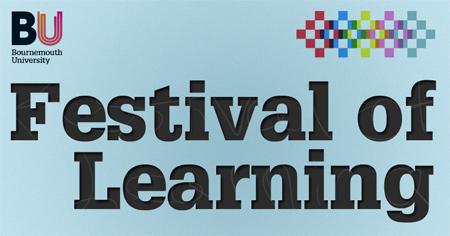
Joint Programming: Healthy Diet for a Healthy Life Strategic Research Agenda Published
 The Joint Programming Initiative (JPI) on A Healthy Diet for a Healthy Life (HDHL) has published its Strategic Research Agenda (SRA) at a recent conference in The Hague. The JPI HDHL has also announced some pilot activities to be undertaken. This area will be really important in furture EC calls, so it would be useful for you to get a flavour of what the EU’s thinking is, so you can see if you are able to fit in anywhere with it.
The Joint Programming Initiative (JPI) on A Healthy Diet for a Healthy Life (HDHL) has published its Strategic Research Agenda (SRA) at a recent conference in The Hague. The JPI HDHL has also announced some pilot activities to be undertaken. This area will be really important in furture EC calls, so it would be useful for you to get a flavour of what the EU’s thinking is, so you can see if you are able to fit in anywhere with it.The SRA is built around three main areas:
- determinants of diet and physical activity;
- diet and food production; and
- diet-related chronic diseases.
The three pilot actions are as follows:
- a project on determinants of diet and physical behaviour;
- a roadmap initiative for biomarkers for nutritional/health claims; and
- a European nutrition phenotype data sharing initiative.
You can read more on the JPI website.
Tender from Creative Care Dorset
Creative Care Dorset is working in partnership with Arts and Health South West to build a more comprehensive overview of the arts and health activity taking place inDorset. Funding for this project comes from Arts Council England and Dorset County Council. The information gathered from this research project will feed into a larger research project that is taking place across the South West as well as support the arts and health development work taking place inDorset.
Creative Care Dorset are seeking an experienced and self motivated researcher with the skills to gather the information we seek efficiently as well as the ability to present the information generated in a user friendly manner. For further details about this commission and how to apply please read the Research Brief . Deadline for applications is: 13th August 2012.
Erasmus Student Network (ESN) Survey 2012 “Exchange: Creating Ideas, Opportunities and Identity” now open for responses
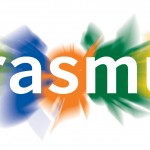 The focus of this year’s edition is to investigate the employability of mobile and non-mobile students and show the beneficial effects of going abroad. The survey also explores the impact of student mobility on entrepreneurship and European citizenship, and gives insight into students´ satisfaction with ESN and other student organisations.
The focus of this year’s edition is to investigate the employability of mobile and non-mobile students and show the beneficial effects of going abroad. The survey also explores the impact of student mobility on entrepreneurship and European citizenship, and gives insight into students´ satisfaction with ESN and other student organisations.
The survey will stay open until the 30th of September and takes no more than 15 minutes to fill in. All participants who complete it have the chance to win a two week intensive language course including 32 lessons in the exclusive Education First school in Manchester (with a total value of more than EUR 1,000).
Accommodation in a host family or residence and a meal plan are included as well as the flight and transfer are included.
AHRC European Proposal Support Fund
 The European Proposal Support Fund (PSF) provides funding to enable researchers to network with potential partners and support the putting together of a proposal to the European Commission.
The European Proposal Support Fund (PSF) provides funding to enable researchers to network with potential partners and support the putting together of a proposal to the European Commission.
The fund is primarily aimed at encouraging UK arts and humanities researchers to engage with the European Commission Socio-economic Sciences and Humanities (SSH) Work Programme, however we are open to considering other European Commission Funding sources. In these cases please contact the AHRC prior to submission and we will advise if you can apply (note: European Research Council (ERC) and Marie Curie Actions are not eligible).
Funding is for up to £10,000 for travel, subsistence, meeting costs etc to enable the researchers involved in the proposal to meet and put together their commission application. Investigator time, overheads etc cannot be included. Applicants must be Arts and Humanities Researchers based in the UK who would ordinarily be eligible for AHRC funding. The application form is very short and needs to be emailed to p.henly@ahrc.ac.uk by the closing date. Deadline: 21st August 2012
Beyond REF2014
Attending a recent course on ‘Researcher development, the environment and future impact’, there seems to be a recurring theme across all sessions – the importance of adopting a long term view into research.
You reap the seeds you sow. This rings true in many aspects of life. It certainly is the common mantra sung by many of the speakers on the course. ‘Investment in the future’, ‘future impact’, ‘vitality and sustainability’ are just some of the buzz words thrown into the mix in that context.
And all that, has a direct and indirect link to the ‘impact’ element in the context of the Research Excellence Framework. Naturally, if you’re at the stage of planning your research and thinking about the impact, you’re too late for REF2014.
Yes, the speakers were referring to REF2020, even though there isn’t an official REF2020 yet.
Isn’t it a bit too early to start thinking about that, I heard you say. When should you start thinking about ‘impact’? Colleagues from other HEIs talked about ‘impact’ at the PhD stages; others even mentioned ‘impact’ during undergrad. So, is there a ‘right’ time to start thinking about impact? Yes. The answer is, as early as possible.
How far wide will your research reach?
How many people will benefit from it?
What significance will it have on the society at large?
How many lives will it change?
Your research is like the stone that creates ripple in the water – how many ripples will it create? How long will the ripples last for? Will it create a beautiful wave? How many people will see those ripples and appreciate their beauty? It’s all to do with the way you cast that stone. You aim, you calculate and you plan.
With proper planning of your research career path comes the evaluation and identification of the relevant ‘impact’. Along the way, other elements like obtaining funding and support, peer review processes and publications will slot into place, piece by piece.
JRF call in Poverty and Ethnicity: Social Networks
 In Spring 2011, the Joseph Rowntree Foundation launched a major new 5 year programme across the UK which aims to increase understanding of the relationship between poverty and ethnicity. Details of the programme can be viewed here.
In Spring 2011, the Joseph Rowntree Foundation launched a major new 5 year programme across the UK which aims to increase understanding of the relationship between poverty and ethnicity. Details of the programme can be viewed here.
A considerable amount of research has been undertaken which has highlighted the positive impact that participation in social networks can have. However, their role in enabling people to escape poverty and the way in which they operate for people in different minority ethnic groups is not fully understood. As part of the first phase of this programme of work, we are inviting proposals for a research project which aims to address this important gap in our understanding.
This research aims to develop our understanding of how the experience of accessing social networks differ across a range of people in different ethnic groups and how this impacts on their ability to escape from poverty.
Further information
The submission must contain two attachments:
- The Proposal Registration and Budget Form (.xls file) and
- The Proposal, including appendices of summary CV’s (.doc file)
For more information about the programme please refer to our poverty and ethnicity page. Proposals should be submitted by 23.59pm on 30 August 2012.
HEA Workshop and Seminar Series Thematic seminars, 2012-13
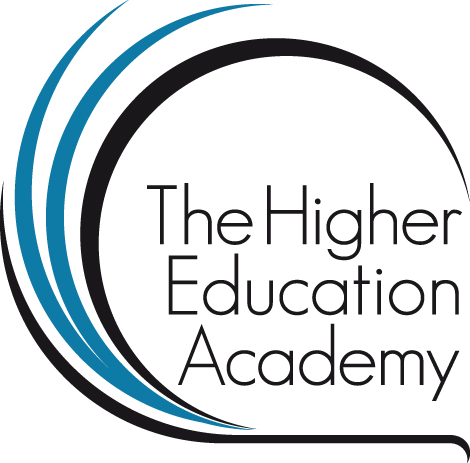 The Higher Education Academy is inviting HEIs to host thematic workshops and seminars that disseminate findings from research or evaluation work, or share evidence-informed policy and/or practice. A grant of £750 is available from the HEA to support each workshop run by the HEI. This is an excellent opportunity to disseminate outcomes from your Education Excellence projects.
The Higher Education Academy is inviting HEIs to host thematic workshops and seminars that disseminate findings from research or evaluation work, or share evidence-informed policy and/or practice. A grant of £750 is available from the HEA to support each workshop run by the HEI. This is an excellent opportunity to disseminate outcomes from your Education Excellence projects.
The next call for proposals for workshops in 2012/13 opens 01 October 2012 and closes 29 October 2012. Workshops or seminars should be held during the spring and summer (February – July 2013).
The three thematic areas for this call are:
• Employability – includes integrating work experience; addressing employer perspectives.
• Flexible learning – includes using technology to support flexibility in the pace or place of delivery; engagement with employers to promote flexibility of pace, place or mode of delivery.
• Internationalisation – includes student mobility; internationalising the curriculum; integration of home and international students; promoting intercultural understanding.
Further details, a proposal form and details of past workshops are here: http://www.heacademy.ac.uk/seminar-series#themes
The RKE Operations team can help you with your application.
New Submission System for 2013 FP7 Calls
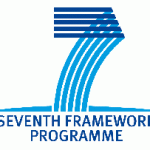 Just as a reminder to any of you who have submitted previously to the EC, but a new system is being introduced for the 2013 calls. The new system is going to replace the Electronic Proposal Submission System (EPSS). Currently, all open calls under the 2013 Work Programmes apart from the European Research Council (ERC) calls require submission of proposals via the new system. Don’t worry if you are going for this year’s Marie Curie’s however as calls still open under the 2012 Marie Curie Work Programme will use the old EPSS system.
Just as a reminder to any of you who have submitted previously to the EC, but a new system is being introduced for the 2013 calls. The new system is going to replace the Electronic Proposal Submission System (EPSS). Currently, all open calls under the 2013 Work Programmes apart from the European Research Council (ERC) calls require submission of proposals via the new system. Don’t worry if you are going for this year’s Marie Curie’s however as calls still open under the 2012 Marie Curie Work Programme will use the old EPSS system.
The new system is integrated into the Participant Portal; so you need to make sure you have a European Commission Authenticated Service (ECAS) account (and make sure you do this in plenty of time). There is a user guide for the system on the EC website.
In short, to start a proposal submission, go via the link provided on the specific Call page in the Participant Portal. In the section Electronic Proposal Submission, the call topic is selected from a drop-down menu. Applicants will have to input their ECAS account information in a separate window before they can continue with their application. Once logged into ECAS, applicants are automatically directed to the Participant Portal submission system screen, and then have to complete “Step 3” (with Step 1 being the login and Step 2 the selection of the funding scheme).
In order to progress from Step 3, the Participant Identification Code (PIC) of the co-ordinating institution is absolutely needed. From here, proposal submission is quite similar to the previous EPSS system. It is important to note however, that a PIC code is now needed for every partner in the consortium in order to be able to add their data. There are also a number of technical requirements details of which you can find in the Commission guide.
Once the first registration is completed, you can go back into the system via the Participant Portal. As in EPSS, it is possible to resubmit drafts of proposals until the deadline. Our resident EU submission experts Paul Lynch and Alex Peirce in RKEO are on hand to give you further advice if you need it.
Festival of Learning… what could you do? A cafe?
Next  up in my series of public engagement activities that you could include in the Festival of Learning is the humble cafe – otherwise known as a Science Cafe, Cafe Scientifique or a Philosophy Cafe.
up in my series of public engagement activities that you could include in the Festival of Learning is the humble cafe – otherwise known as a Science Cafe, Cafe Scientifique or a Philosophy Cafe.
The basic premise of this activity is for academics to give a short talk on their subject area (in a way that is both accessible, but also sometimes provocative) before informal discussion takes place amongst participants.
Key to this (the clue is in the name) is to encourage convivial discussion in an non-academic environment, typically a cafe or bar, to allow people to relax and contribute to discussion. Crucial to making this format work is to ensure that the initial talk is thought provoking, provides a starting point for discussion and encourages the audience to contribute to the debate. To do this, it can be fruitful to move away from the traditional lecture format – which normally means no powerpoint, stages or lecterns!
For more details, it is worth looking at the Cafe Scientifique and the Philosophy Cafe websites.
If you would like to talk more about ideas that you have for the Festival of Learning, please contact Becca on redwards@bournemouth.ac.uk or 01202 961206.
At an early stage in your research career? Then come to one of our ECR Forums! First one next week!
 Over the next six months we are running a series of forums for academic colleagues who are at an early stage in their research career. The forums will be open, informal sessions where you can meet with a group of experienced academics and Julie Northam and Julia Taylor from the R&KEO to discuss anything you like to do with research. From publications to projects to funding to research strategy we will be on hand to help and advise. Lunch / refreshments will be provided.
Over the next six months we are running a series of forums for academic colleagues who are at an early stage in their research career. The forums will be open, informal sessions where you can meet with a group of experienced academics and Julie Northam and Julia Taylor from the R&KEO to discuss anything you like to do with research. From publications to projects to funding to research strategy we will be on hand to help and advise. Lunch / refreshments will be provided.
The forums will be held at the following times and you will need to book to confirm your attendance (this is so we can order enough food and refreshments in advance)
25 July 13:30 – 15:00 in Casterbridge, Thomas Hardy Suite Talbot Campus
17 September 12:30 – 15:00 on the Talbot Campus (Room to be confirmed)
19 November 12:30 – 15:00 on the Lansdowne Campus (Room to be confirmed)
11 December 12:30 – 15:00 on the Talbot Campus (Room to be confirmed)
BUCRU – Seminar presenting Breaking News!
BREAKING NEWS…
We would like to invite you to an afternoon seminar by one of our Visiting Faculty, Professor Mike Wee, presenting some exciting new research findings to come out of a recently completed Research for Patient Benefit funded study comparing two methods of pain relief during labour (abstract and biography below). This paper was just voted best paper of the conference at the Obstetric Anaesthetists Association Annual Conference in Liverpool and was featured recently in the Bournemouth Echo http://www.bournemouthecho.co.uk/news/9770928.Pain_relief_in_labour__study_at_Poole_hospital_makes_important_discovery/
The seminar is scheduled for Thursday 19th July 2-3pm in BG10 Bournemouth House (after the HSC end of term lunch and next door for your convenience).
We hope you can make it and look forward to seeing you then.
BUCRU
Website: http://microsites.bournemouth.ac.uk/bucru/
Administrator: +44 (0)1202 961939 / wardl@bournemouth.ac.uk
Title: The IDvIP Trial: A two-centre double blind randomised controlled trial comparing i.m. diamorphine and i.m. pethidine for labour analgesia
Research team and affiliations: MYK Wee, JP Tuckey,* P Thomas,† S Burnard,* D Jackson.
Poole Hospital NHS Foundation Trust, Poole, UK, *Royal United Hospital, Bath, UK, †Bournemouth University Clinical Research Unit, Bournemouth, UK.
Abstract:
Background: Intramuscular pethidine, the commonest parenteral opioid analgesic used in obstetrics and more recently diamorphine usage has increased in the UK. The maternal, fetal and neonatal side effects are well known for pethidine but there are no sufficiently powered large RCTs comparing pethidine with diamorphine. The aim of this trial is to address this.
Methods: After ethical approval, informed consent was obtained from 484 women randomised to receive either 7.5mg diamorphine i.m. or 150mg pethidine i.m. for labour analgesia. The sample size calculation derived from a small RCT giving 90% power (at the 5% significance level) is based upon the maternal primary outcome measure of pain relief at 60mins and the neonatal primary outcome measures of Apgar Score of <7 at 1min and neonatal resuscitation. Secondary outcome measures include verbal pain intensity at 60mins and over 3hrs post-analgesia, pain relief over first 3hrs, maternal oxygen saturation, sedation, nausea and vomiting and maternal satisfaction with analgesia. Fetal and neonatal secondary outcomes include CTG trace, meconium staining, UApH, UVpH, time of delivery to first breath, Apgar Score at 5mins, naloxone use, neonatal oxygen saturations, sedation and feeding behaviour for the first 2hrs after delivery.
Results: Reported using CONSORT guidelines. At 60mins post-administration and over a 3hr period, diamorphine is better at reducing pain scores than pethidine (p<0.001). There were no statistical differences between the two groups regarding Apgar Scores of <7 at 1min and the need for neonatal resuscitation. The time between first dose administered and delivery is on average 82mins longer with the diamorphine group compared to pethidine (p<0.001). The vast majority of women experienced moderate to severe pain at all times. Women receiving diamorphine were more satisfied with their analgesia. There were no statistically significant differences in maternal sedation, nausea and vomiting or oxygen saturations over the 3hr period. There were no statistically significant differences in the fetal and neonatal outcomes including feeding behaviour between the two groups within 2hrs of birth but neonates in the pethidine group were more likely to be moderately or severely sedated at delivery.
Discussion: Intramuscular 7.5mg diamorphine gives significantly better analgesia than 150mg pethidine but prolongs delivery by approx. 82mins. Women given diamorphine are more likely to be satisfied with their analgesia. The mechanism for the prolongation of delivery time in the diamorphine group should be investigated further.
Acknowledgement: This research was funded by the NIHR Research for Patient Benefit Programme (PB-PG-0407-13170).
References
1. Tuckey JP, Prout RE, Wee MYK. Prescribing intramuscular opioids for labour analgesia in consultant-led maternity units: a survey of UK practice. International Journal of Obstetric Anesthesia 2008, 17(1):3-8.
2. Fairlie FM, Marshall L, Walker JJ et al. Intramuscular opioids for maternal pain relief for labour: a randomised controlled trial comparing pethidine with diamorphine. British Journal of Obstetrics and Gynaecology 1999; 106(11): 1181 -1187.
Biography of speaker:
Michael Wee is a consultant anaesthetist from Poole Hospital and Royal Bournemouth Hospitals. He has a special interest in obstetric anaesthesia and is the lead obstetric anaesthetist at Poole Hospital. He is chair of the Research and Innovations Group at Poole Hospital and is a Board member of the Western Comprehensive Local Research Network. He was awarded a visiting professorship at Bournemouth University in 2009. He is a referee for several medical journals. His research interests include patient information, safety in anaesthesia, maternal analgesia and simulation in epidural anaesthesia. He is a co-supervisor of a PhD student at BU and chief investigator of the MObs study investigating early warning scores in obstetrics.















 New CMWH paper on maternity care
New CMWH paper on maternity care From Sustainable Research to Sustainable Research Lives: Reflections from the SPROUT Network Event
From Sustainable Research to Sustainable Research Lives: Reflections from the SPROUT Network Event REF Code of Practice consultation is open!
REF Code of Practice consultation is open! ECR Funding Open Call: Research Culture & Community Grant – Apply now
ECR Funding Open Call: Research Culture & Community Grant – Apply now ECR Funding Open Call: Research Culture & Community Grant – Application Deadline Friday 12 December
ECR Funding Open Call: Research Culture & Community Grant – Application Deadline Friday 12 December MSCA Postdoctoral Fellowships 2025 Call
MSCA Postdoctoral Fellowships 2025 Call ERC Advanced Grant 2025 Webinar
ERC Advanced Grant 2025 Webinar Update on UKRO services
Update on UKRO services European research project exploring use of ‘virtual twins’ to better manage metabolic associated fatty liver disease
European research project exploring use of ‘virtual twins’ to better manage metabolic associated fatty liver disease